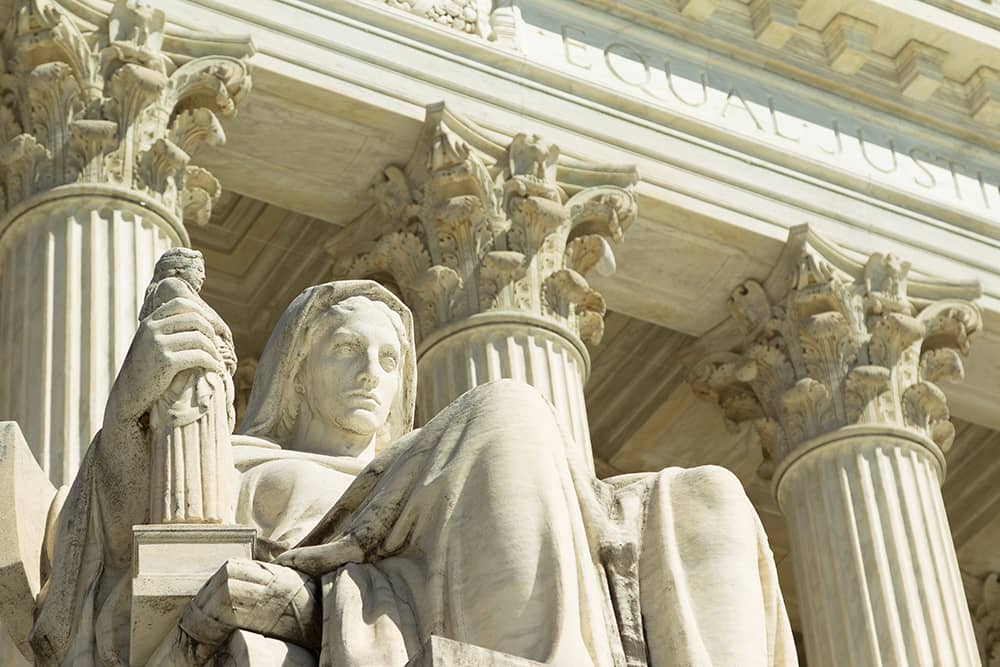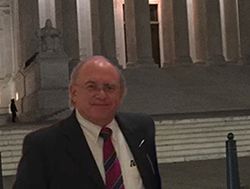First Amendment

FIRST AMENDMENT/HNRC 4013H-004 (11970)
F 9:30 a.m.-12:00p.m., Spring 2023
LAW SCHOOL (room to be assigned)
Note: This is a law school course with seats reserved for 5 honors students selected by application
Interested?
Current students can apply online. Application deadline: 11:59 p.m., Monday, October
31.
Questions?
Contact
John Treat
.
Apply for Honors College Courses
An intensive examination of the legal issues arising under the First Amendment to the United States Constitution, with an emphasis on basic free speech doctrines and the dilemmas posed by interplay between the free exercise and establishment clauses. This is a Law School course with 5 seats reserved for Honors College students.
Course Credit:
- All-students: 3 hours of honors credit
-
Fulbright College:
- Fulbright Honors humanities colloquium
- Look for further Fulbright departmental credit updates soon.
- Three hours of upper-level honors credit in History.
- Three hours of upper-level honors credit in Legal Studies.
- Three hours of upper-level honors credit in Political Science.
- Three hours of upper-level honors credit in SJSM as follows:
The First Amendment course is approved, but all SJSM students who plan to take the course should be advised as follows before they enroll:
-
- Students who take the course should have completed JOUR 3633 Media Law beforehand, and
- Students who take the course should be told before enrolling that there is only one exam at the end of the semester.
-
- Walton College: honors colloquium credit
About Mark Killenbeck:

Professor Killenbeck is the Wylie H. Davis Distinguished Professor of Law. He currently teaches courses in the First Amendment, American legal history, and a Supreme Court seminar. He earned his A.B. in English literature from Boston College and both his J.D. and Ph.D. at the University of Nebraska, where he spent 13 years in the University’s Central Administration, ultimately serving as Chief of Staff for the system President.
He is the author of numerous books, chapters, articles and papers, with a special focus on federalism, American constitutional history and affirmative action and diversity. His articles have appeared in major national law journals and many peer-reviewed journals and collections, including the Supreme Court Review, California Law Review, Michigan Law Review, Vanderbilt Law Review, The Journal of Supreme Court History, and Hastings Law Journal. His book, M’Culloch v. Maryland: Securing a Nation, published in 2006 by the University Press of Kansas, was the first book-length treatment of that important case. His assessment of the Supreme Court’s 2003 affirmative action decisions, Affirmative Action and Diversity: The Beginning of the End? Or the End of the Beginning?, was published in 2004 by the Educational Testing Service in their Policy Information Perspective series. He has also contributed chapters to a number of works, including The Oxford Guide to United States Supreme Court Decisions, the Encyclopedia of the Supreme Court of the United States, and Social Consciousness in Legal Decision Making: Psychological Perspectives.
Professor Killenbeck was the first individual in the history of the Law School elected to membership in the American Law Institute while serving on the faculty and is now a life member of the Institute. He has also recently been appointed as Consulting Editor for The Journal of Supreme Court History.